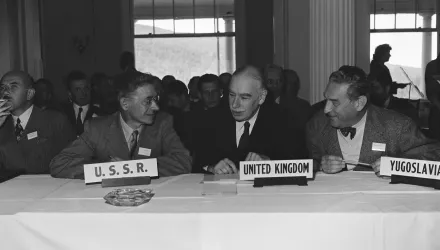International Security is America's leading peer-reviewed journal of security affairs.
Summary
President George W. Bush’s Iraq surge decision in late 2006 is an interesting case for civil-military relations theory, in particular, the debate between professional supremacists and civilian supremacists over how much to defer to the military on decisions during war. The professional supremacists argue that the primary problem for civil-military relations during war is ensuring the military an adequate voice and keeping civilians from micromanaging and mismanaging matters. Civilian supremacists, in contrast, argue that the primary problem is ensuring that well-informed civilian strategic guidance is authoritatively directing key decisions, even when the military disagrees with that direction. A close reading of the available evidence—both in published accounts and in new, not-for-attribution interviews with the key players—shows that the surge decision vindicates neither camp. If President Bush had followed the professional supremacists, there would have been no surge because his key military commanders were recommending against that option. If Bush had followed the civilian supremacists to the letter, however, there might have been a revolt of the generals, causing the domestic political props under the surge to collapse. Instead, Bush’s hybrid approach worked better than either ideal type would have.
Feaver, Peter. “The Right to Be Right: Civil-Military Relations and the Iraq Surge Decision.” Spring 2011





